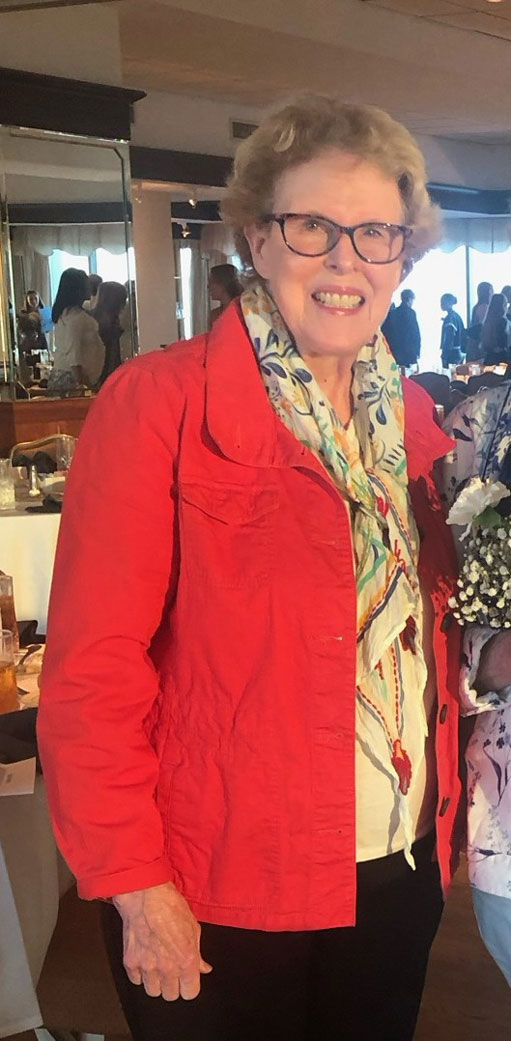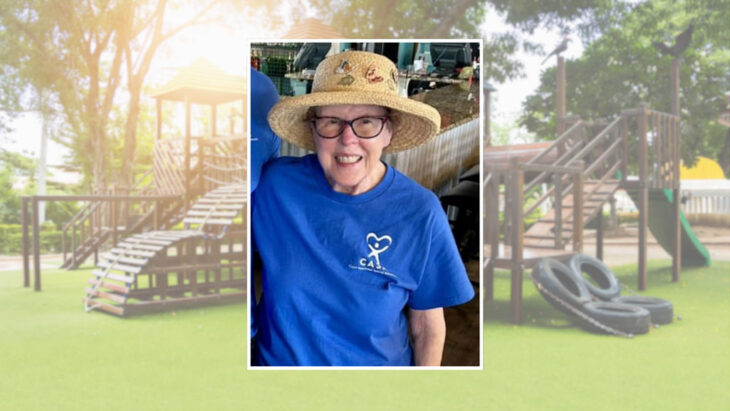Ruthie Wilder spent 25 years as a school counselor before her retirement. She left her longtime job, but helping kids was still in her system. Over the past 14 years, she has advocated for 44 children as a CASA (Court Appointed Special Advocate).
She recently shared about the inspiration and passion to help children.
 What inspired you to become a CASA advocate?
What inspired you to become a CASA advocate?
“When I retired from being a school counselor for 25 years, I had a passion for kids who got lost in the system. This was a time when it was more punitive and parents did not have resources. So when I finally retired, I saw an ad in the paper that Harrison County was going to start a CASA program. I had heard about CASA in other counties and was excited we were getting one. I was the first one to sign up and was in the first class that Harrison County trained. This is definitely my passion, and each bump along the way has had a purpose to make us better.”
Can you share a memorable experience from your time as an advocate that highlights CASA’s impact?
“I advocated for a sibling group whose case lasted three years. The siblings were all in different placements in different cities. I worked closely with the CPS worker on going to visit one of the children when they were in a facility a few hours away and the other sibling was in a foster home in Gulfport. There was a third sibling that ran away, and we worked effortlessly trying to find her. Working diligently with CPS, we were able to find an adoptive placement for the boy that was only a few streets over from his sister. The dynamics of having three siblings in three different settings was difficult, but the work I did with the CPS worker and helping to find forever homes for the siblings made a lasting impact. I still to this day talk with the adoptive placements, and they send me pictures of the children and keep me up to date. I know if it wasn’t for CASA and CPS making sure all the boxes were checked and advocating for the children to be placed close together that the outcome could have been different. The children are thriving in their forever homes.”
What do you find most rewarding about being a CASA advocate?
“I don’t do this for the reward, but it feels good to do the right thing. I have been given the training and the resources to know what to do and how to persevere when it doesn’t always work out. The other part about advocacy that I enjoy is getting to know all of the other advocates and feeling like we are all part of this big story that is helping the children and families in our communities. I couldn’t do this work without the support of the CASA staff, and especially my supervisor. She is my shepherd and always helps put together the pieces. She is always there to help me on anything that comes up in my cases.
How would you describe the role of a CASA advocate to those unfamiliar with it?
“I would first ask them if they liked children and just see if they are interested in learning more about CASA. I would make sure they knew we are the voices for children and also how supported we are in our roles. There are protocols, supervisors and all of the people to support the goals we have as advocates. You are never thrown out on your own. I also would tell them that you never know what little acts of kindness can do in helping the children and families we work with, You truly can make a life-changing difference.”
What would you say to someone interested in CASA?
“I would tell them it is all about timing, and if this is the right time, or if you are feeling called to do this work, then come talk to the staff about the difference you can make. People are watching what we do and seeing the difference we make. This is something people should want to be a part of in being the change!”
Why do you think CASA’s work is so vital for children and families involved in the child welfare system?
“It goes back to the old saying: ‘It takes a village’. Except nowadays, the village is even more needed due to the complexity of the families we serve, society, families struggling and not knowing about resources. CASA can be the safety net for these families. We don’t have to have a reason why, but it is needed. The work we do is not always neat and clean, but we roll up our sleeves and get it done because if families are falling apart, we need to be there for the children.”
GET INVOLVED
Interested in becoming an advocate or monetarily supporting CASA? More info available at casasouthms.org.
This project was supported by MS State Victim Services Grant Funds awarded by the MS State Department of Health, Office Against Interpersonal Violence, state administering agency. The opinions, findings, conclusions and recommendations expressed in this publication/program/exhibition are those of the author(s) and do not necessarily reflect views of the state.”


